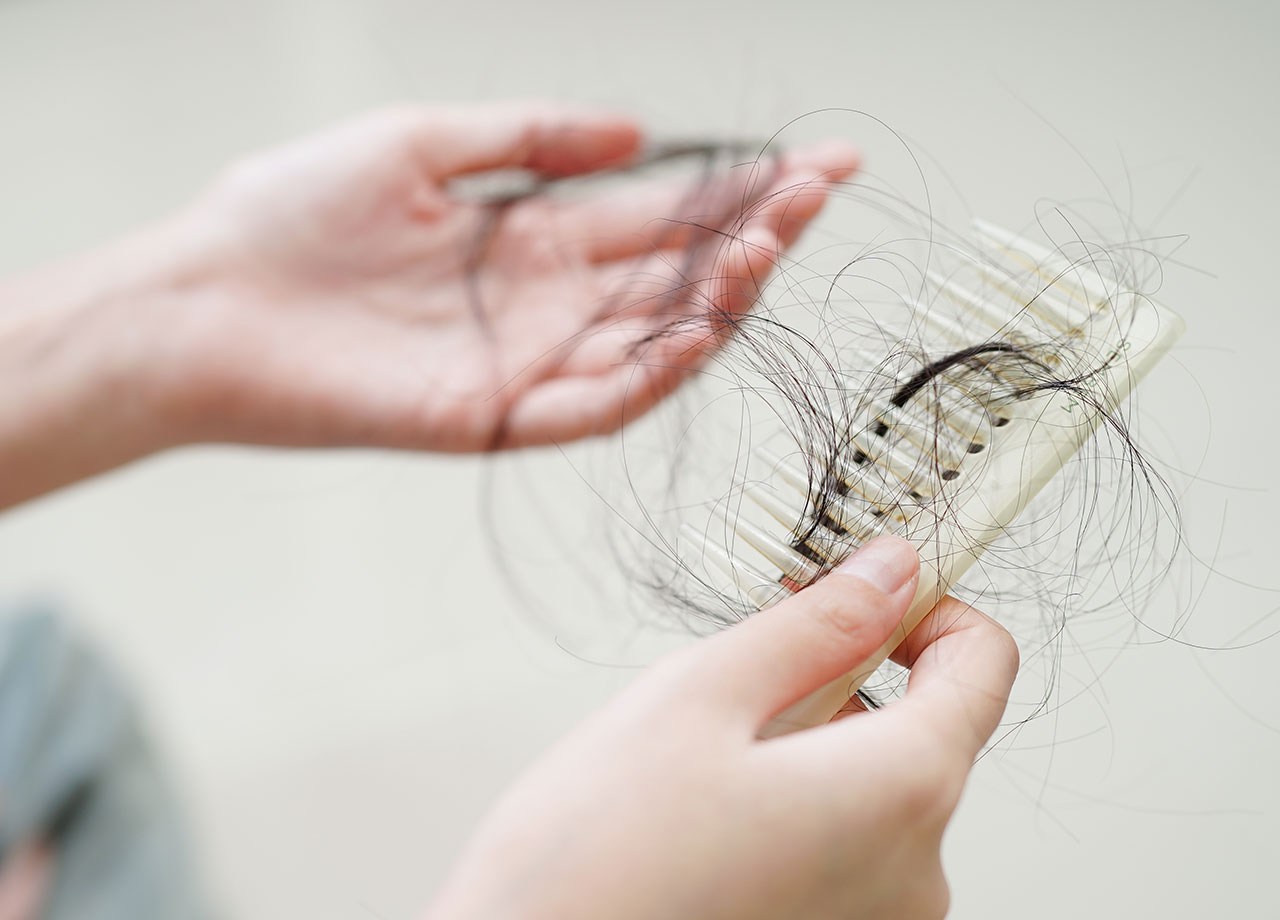
Vitamin A
Vitamin A is a nutrient that is abundant in a number of foods and should be fairly easy to obtain from food sources alone. As a general rule, too much vitamin A can lead to hair loss though. This fat-soluble vitamin is stored in the liver and plays an important role for your immune system, vision, and reproduction. But overdoing it can negatively impact your hair and hair growth patterns.
Biotin
Biotin is a B vitamin that is celebrated for its ability to keep hair healthy, and it’s an important nutrient to supplement with if you’re deficient in it. But taking it in abundance can lead to health issues that include biotin toxicity, which can lead to hair loss and also loss of hair color, cracked lips, insomnia, and more. Be careful with biotin as it’s in so many supplements, including hair, skin, and nails supplements.
Iron
Iron is a tricky supplement. Too little iron can lead to anemia, and this causes hair loss as well as more potentially serious complications like heart problems and fatigue. But too much iron also isn’t good — it can lead to a condition called haemochromatosis, and one of the first signs of this is hair loss.
Selenium
Selenium is one of the top nutrients you will find in hair and skin supplements, alongside biotin. But there’s little to no evidence that selenium helps with hair growth, and overdoing it with this nutrient can lead to hair loss, brittle nails, skin rashes, nausea, and more.
Vitamin E
Add vitamin E to the list of skin, nails, and hair nutrients that supplement manufacturers love to include in their formulations. Vitamin E is an important nutrient for these reasons and more, but too much vitamin E can lead to gastrointestinal derangement, thyroid problems, weakness - and, yes, hair loss.
Zinc
You need zinc to keep your immune system strong and healthy, and it’s also important for hair growth. But overdoing it with zinc leads to hair loss, too. The RDA recommendation is 10 milligrams, and most of the time you can obtain enough of this nutrient from food.
When in doubt, visit your doctor for a full examination and blood work before supplementing with vitamins and minerals. You’ll have more success — while avoiding potential health risks — if you first find out if you’re deficient in a nutrient and if supplementation can benefit your hair and health.


